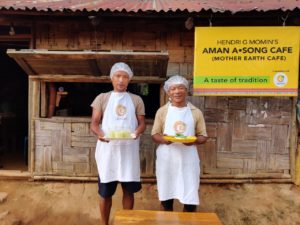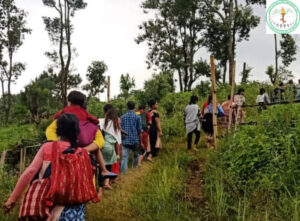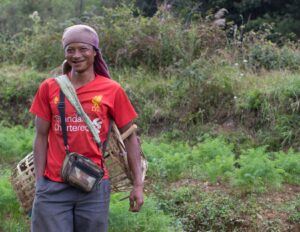MLA James P K Sangma inaugurates NESFAS’ latest initiative on Community Seed Banks
On the 9th of June, 2022, NESFAS’ latest project “Rice-centric Community Seed Banks for Healthy and Resilient Food Systems” was inaugurated by Shri James P K Sangma, honorable cabinet minister, Government of Meghalaya, at Sadolpara in West Garo Hills. The project aims to preserve, protect, and revive varieties of staples found in 11 communities. This initiative is a joint partnership between Sangma, NESFAS, ELP Foundation and 11 communities under Dadenggre Block.
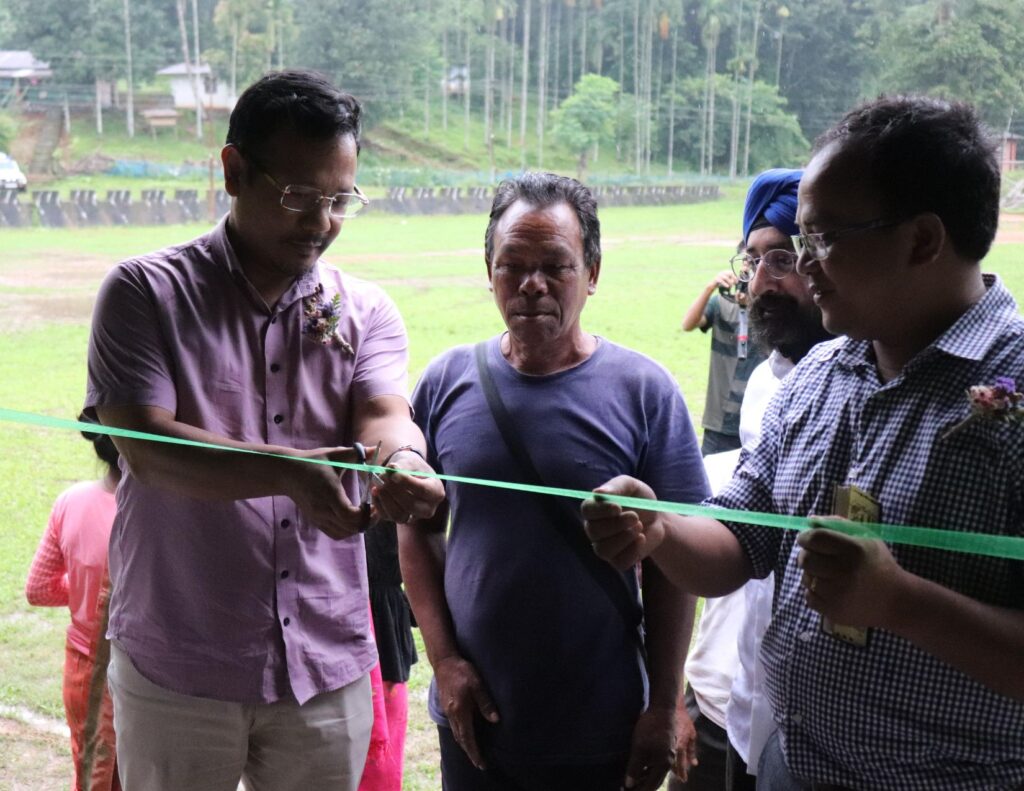
Addressing at the event, Sangma said, “The idea of this project is to understand the scope for further research and development of rice species so that large-scale cultivation could be made possible with the help of local communities”. NESFAS is happy to have Sangma come forward to support the aim in reviving, defending, and promoting Indigenous Food Systems (IFS).
Rice is of great cultural significance among the Garo Indigenous People, and has been the staple food of the land since time immemorial. Garos have been showcasing the presence of rice through songs, dances, recitations, poems, and so on. The community of Sadolpara is particularly well-known for the abundance in the traditional species of rice. In 2013, the International Fund for Agricultural Development (IFAD) partnered with celebrated film-maker Mira Nair to produce a documentary in 2003, which was entitled ‘Still, the Children are Here.’ The film highlights the local rice varieties that the Sadolpara community nurtured for many years. A research done by Meghalaya Mission for Indigenous Knowledge found a 6000-year-old traditional species of rice in Sadolpara.
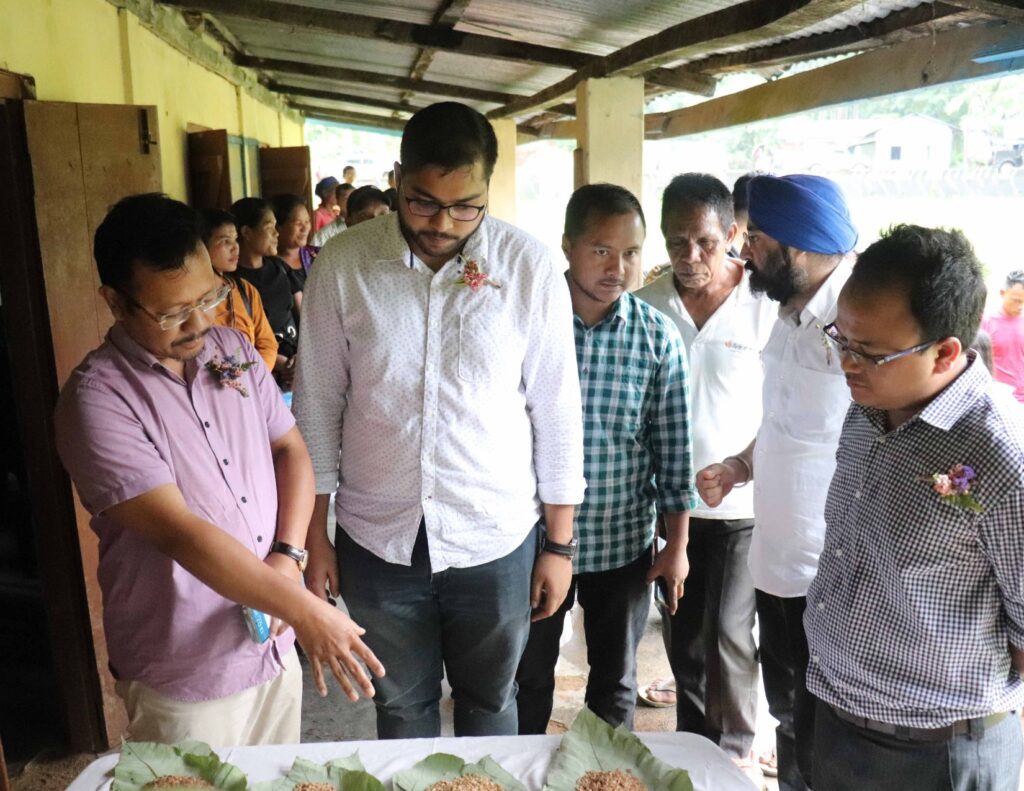
Sangma also added that the world in this day and age is moving at a quick pace towards GMOs (Genetically Modified Organisms) and with it we have issues of climate change. He stressed that if these local varieties of rice seeds have existed for 6000 years or more, surely, they are climate resilient and the right approach to climate problems.
Delighted with having launched the project, the Executive Director of NESFAS, Pius Ranee was quoted as saying, “I am very happy today that we are launching this project. I would like to thank our Chairman Phrang Roy and the late father of Sir James Sangma, Shri P. A. Sangma. We will be working closely with Sadaolpara and the 11 communities as one family for this project. It is important to revive and protect these rice and millet seeds, because when we lose the seed, we will lose the language, and eventually we lose our culture”.
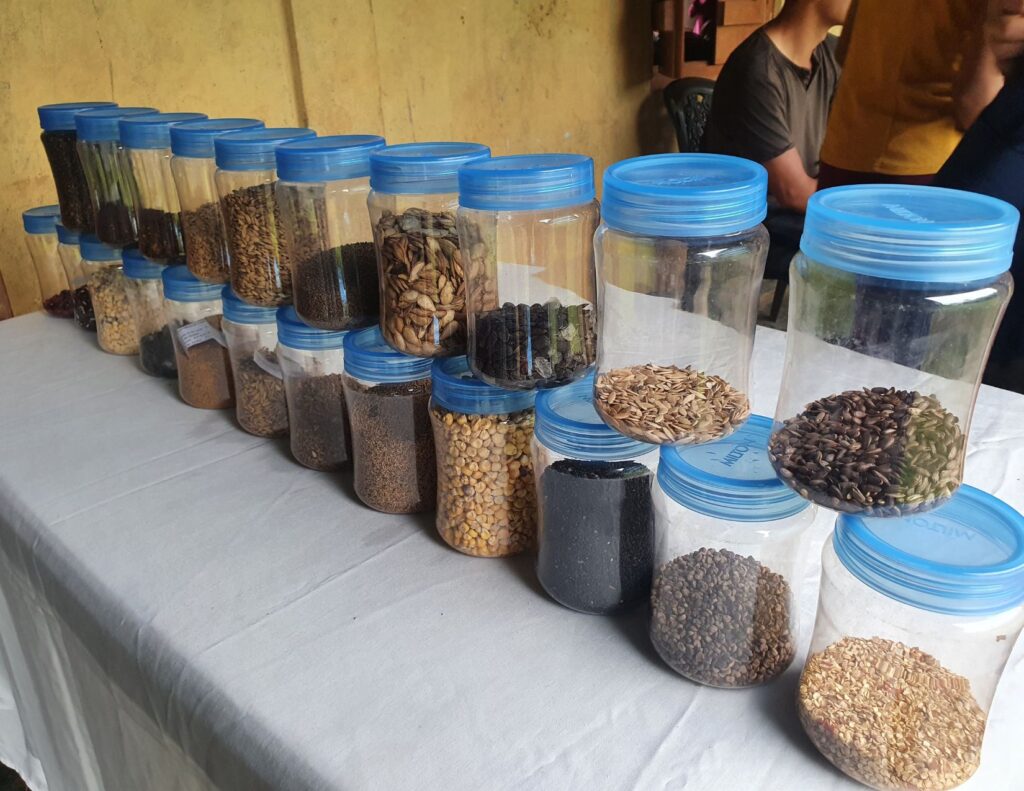
A highlight of the inaugural ceremony was the Doroa performance- a recitation sung in verses- by Bimsing Sangma, a custodian farmer of the Sadolpara community, in which he sang about how rice first came into the world with the help of fairy elves, commonly known as Te×teng and this is according to the Garos’ beliefs.
The community of Sadolpara expressed their gratitude on having this project brought out for them. A community elder, Chekjing M Sangma, said, “We are very thankful to have been given this opportunity to preserve our rice seeds and we will work as a community to take care of the seed bank.”

